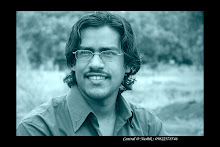People who learned to ski at early ages learned the fundamentals early and well. Not if you begin at 40. Instructors pushed the early learners to move to more difficult slopes while maintaining good form. The late starters take their bad form from slope to slope. As supposed, the early learners are much better skiers than those who start at 40. While the early learners were taught correctly, the late starters learned the skills willy-nilly — just like all those supervisors left to their own devices until they reached their 40s. Worse, the late starters have to practice the questionable skills over and over, ingraining them deeply.
Practice makes perfect only if done correctly.Practicing for hours doesn't automatically create excellent skills. Say, for instance, that, as an aspiring golfer, you go to the driving range and practice by hitting buckets of balls off into the blue. You may leave feeling you've done something to help you improve, but more than likely you will only have practiced whatever swing you came with — good, bad, or indifferent. But say that when you go to the range you take a more deliberate approach. You draw a circle 20 feet in diameter, move back a bit, and proceed to hit balls until 80% land in the circle. Then you move farther back, take a different club, and do the same thing. That is deliberate, focused, and productive practice. Perfect practice makes perfect performance.
Your young supervisors are practicing on the job whether you've trained them or not. Supervisors, are of course, leading people from the first day on the job. And from that day habits are being formed. Attitudes are being created. Management practices begin to coalesce. Would it not be in the organizations and the individuals' best interests to begin that process the moment they're selected for that position?"With all the money and effort being spent on leadership development programs, why don't we have better leaders?"
The answer to that question is obviously complex that we have simply waited too long to develop these skills? It may be possible to teach old dogs new tricks, but there's no question that the sooner you begin, the easier it is. BLINK! THINK! DECIDE!







